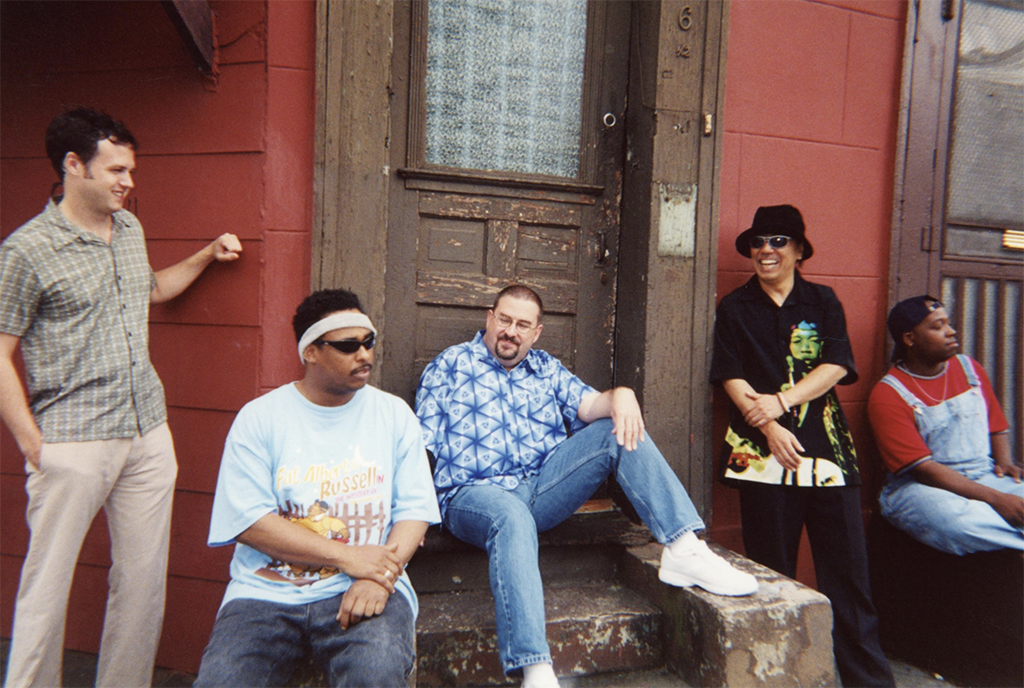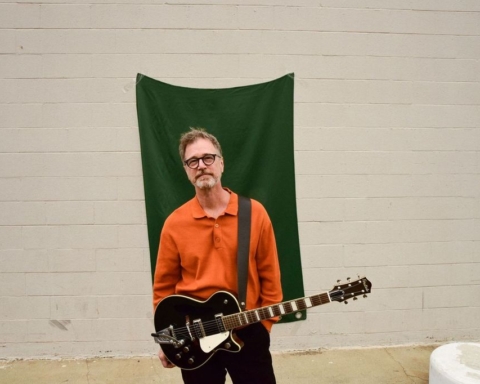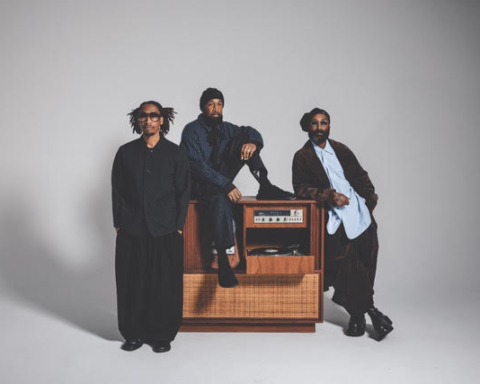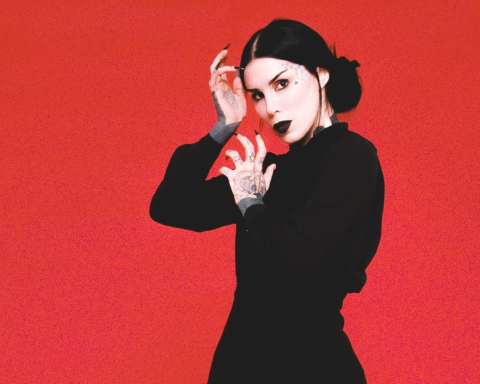Do U Want It?, a film that chronicles the rise of legendary New Orleans’ band Papa Grows Funk, is making its Bay Area premiere Feb. 2, at The Roxie as part of SF IndieFest. It follows the band as they embark on their farewell tour and seeks to answer the age-old question of what it is that defines success as a musician. Is it playing sold out arenas to millions of adoring fans and selling a bunch of records? Or is it instead to pursue music for the sole purpose of creating and the passion for the craft, even if it means struggling just to pay rent and put some food on the table?
Sam Radutzky, one of the films co-directors, spoke to Music in SF about what inspired him and his team to make this movie, what they’ve learned from filming it, and what their take is on the recent mass exodus of many artists from the Bay Area.
What inspired you guys to make this movie?
Josh and I moved to New Orleans in 2012 after graduating from Northwestern University to start a video production company dedicated to creating video content for bands and musicians. We moved down to New Orleans mainly because we were huge fans of the music and the culture of the city. Before moving to New Orleans we were already big fans of the band Papa Grows Funk and upon our arrival in the city, we immediately started attending their weekly Monday night shows at The Maple Leaf Bar. The energy, musicianship, community and pure fun that existed at The Maple Leaf every Monday night was something we began to depend on. Hanging out at The Maple Leaf made us feel welcome in our new home, and helped bring us into the tight-knit musical community of New Orleans.
After a few months of living in New Orleans, Papa Grows Funk announced they were going on one big farewell tour and then were taking an indefinite hiatus. This news was sad for us, but it also inspired us to make a short film about the band that would work to cement their legacy as one of the great New Orleans bands. We pitched John Gros, the leader of the band, on filming a couple of the band’s final shows and interviewing the band members and some other members of the music community. John was totally onboard and helped set up interviews with some of the biggest names in the New Orleans music world. Once we started conducting these interviews, it became apparent to us that Papa Grows Funk’s story is a story that countless other New Orleans bands and musicians have shared over the years. It became clear that their story could be used as a vehicle to explore the inner workings of New Orleans music culture at large. It was at this point that we decided to turn the project into a feature-length documentary film. Five years later, here we are getting ready to have our Bay Area Premiere at SF IndieFest.
What is your favorite part of the movie?
I would say my favorite part of the movie is a scene referred to as “The Jaegermeister Night.” Early on in Papa Grows Funk’s career, they were playing a weekly gig at a bar called The Old Point Bar, which was a bit outside of New Orleans proper. One night, after Papa Grows Funk had only existed for a couple of months, the band was getting ready to play a gig at The Old Point bar, but there was no one in the bar to watch the band play. After hours of hanging out and waiting and drinking lots of Jaegermeister, two fans walk into the bar ready for some live music. When they see that the bar is empty, they take it upon themselves to give the band a couple of hundred bucks cash to play their set. The band drunkenly agrees to the terms, and before they know it, there are over 50 people in the bar dancing to the music.
Eventually, the drummer, Russell Batiste Jr., stops the set and starts drunkenly lecturing the crowd until he has to be carried out of the bar. This weird, hilarious night proved to be a pivotal moment in the story of Papa Grows Funk, and the success of that night was the reason to play again next week, and the week after and the week after that, because you just never knew what was going to happen. We heard a lot about “The Jaegermeister Night” in our interviews with band members and knew we wanted it to be a scene in the film, but we had no photos or video from the night. Because of this, Josh and I decided the best way to handle this part of the story would be to create an animated sequence that could properly depict this scene. That decision led us to discover and hire the animator Jimmy Tancill, who ended up creating several different animation sequences for the film.
What’s one life lesson you learned from filming this?
One of the most significant life lessons I learned from making this film is that success is elusive and that figuring out what success actually means to you is way more difficult than actually experiencing it. I think Papa Grows Funk was chasing a certain idea of success without fully realizing the immense amount of success they had already achieved. I think being able to do what you love and share it with people who love it just as much, if not more than you do is an extremely rare and special thing. Papa Grows Funk, and really, all of the musicians in the city of New Orleans are able to make that commonplace.
What were some of the most significant challenges in creating this film?
The biggest challenge of making this film was doing so with such a small crew and such a tiny budget. For the vast majority of this project, it was Josh and I doing everything. We directed, wrote, produced edited, and shot this film ourselves. We raised all of the money for the film on the crowdfunding site Indiegogo and were working with a very small budget for the size and scope of the project. Because of that, Josh and I were not able to pay ourselves at all for working on this film. That required a lot of patience because while working on the film, we were also working on tons of other projects to pay the bills. The tiny crew and small budget combined with the fact that this is the first feature Josh and I have made, required tons of patience and made the whole process extremely challenging but also incredibly rewarding.
Why do you think music is so important in New Orleans?
Music is everything in New Orleans. It accompanies every celebration and every tragedy and is constantly being performed on street corners, bars, and theaters all across the city. I really believe there are probably more musicians per capita in New Orleans than anywhere else in the world. New Orleans is also the birth-place of Jazz, easily one of America’s greatest cultural contributions to the world, and something that has continued to grow and thrive in the city. I think the deep history, combined with the importance of celebrations and community in New Orleans, make it the most important and vibrant musical city in the world.
You describe the movie as being a film that focuses on a group of elite blue collar musicians who are both nourished by the city of New Orleans and inhibited by it. What do you mean by that?
I don’t know if my description of the band members would be as blue-collar musicians. They’re simply working musicians who are able to enjoy a comfortable and stable lifestyle in New Orleans because of the high degree of opportunity there to simply play at home. Papa Grows Funk couldn’t have been born out of any other city in the world. The band formed as a super jam on a Monday night and somehow managed to turn that into a 13-year career of playing in New Orleans and traveling the world playing their music. Because the New Orleans musical community is such a tight-knit network, and because so many world-class musicians are always in town at any given time, most New Orleans musicians play in multiple bands. Not only that, but most bands are happy to have other musicians jump on stage and sit in with them for a few songs. Papa Grows Funk grew out of this world of sit-ins and side projects, and all of this contributed to the growth of the band and the growth of the individual players as musicians.
On the flip side of this musical/cultural phenomenon, is the idea that because of the self-sufficient, and incestual nature of the New Orleans music scene, it becomes immensely hard to break out of New Orleans. It’s hard for a musician to commit to going on the road for six months and accept little pay, when they know they can go back home and play a different gig every night of the week to throngs of adoring fans who are coming to New Orleans to see you from all over the world and still go home to sleep in their own bed. This comfort that musicians often find in New Orleans can really inhibit their ability to make a mark on the national music scene. The real question the film explores is what’s actually more important and ultimately more fulfilling, playing in big venues across the country and living a life on the road, or being able to live a comfortable life playing at home to crowds of people that know and love the music just as much as you do?
There’s been a lot of talk about musicians leaving San Francisco because of the rise of housing prices and musicians not being able to support themselves. What do you think happens to a city when its artists start fleeing for other parts of the country?
(Alex Mallonee, Bay Area native chiming in here) The art gets worse! At least temporarily, because I really do feel it’s an ebb and flow situation. Musicians and artists are the canaries in the coal mine for a city’s coolness. I think a city’s vibe is directly influenced by its art scene and that vibe is a big part of why people want to move to the Bay Area, along with the economic opportunity and natural beauty. I hope that other artists will step up and fill the void. The San Francisco Bay Area, for now, is very different than it was even ten years ago, but there is still a vibrant arts scene.
But the pressure of those rising costs is terrifying. It’s an interesting comparison between the Bay Area’s external forces pushing artists elsewhere where they can live and work more comfortably in a city like New Orleans, which seems to me to be this great talent incubator. The rent is cheap, musicians are everywhere, and people are coming from all over the world to hear live music. For a musician, it offers a lot of security. But all those comforts make it that much harder to leave. Imagine a musician moving to San Francisco from New Orleans right now. That’s going to be a difficult transition. Most of my musician friends here have day jobs. Out here you have to be very dedicated because you’re going to have to hustle to get by. This ain’t the “Big Easy.”
You’re premiering the movie at SF Indie Fest. What do you hope audiences will take away from it?
I hope that audiences will see this film, and feel like they need to book a flight down to New Orleans as soon as possible. I hope the film inspires people to discover more about New Orleans music and to listen to The Meters, and The Neville Brothers and Dr. John and Fats Domino and Professor Longhair and all of the other amazing New Orleans musicians that have still yet to be discovered by too many people.






